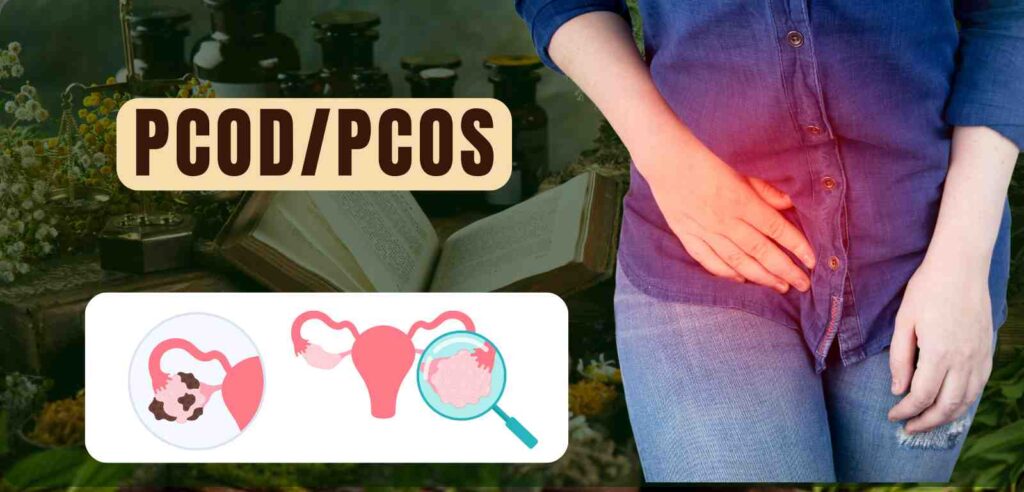
PCOD/PCOS
Polycystic Ovary Syndrome (PCOS), also known as Polycystic Ovary Disease (PCOD), is a common hormonal disorder that affects women of reproductive age.
It is characterized by prolonged or infrequent menstrual periods and higher levels of male hormones (androgens).
The ovaries may develop numerous small collections of fluid (follicles) and fail to regularly release eggs.
PCOD/PCOS is a common hormonal disorder that can lead to various health issues if not managed effectively.
Recognizing the signs and understanding the causes is the first step toward managing this condition.
Lifestyle modifications, including a balanced diet and regular physical activity, are crucial in managing PCOS.
If you’re experiencing symptoms of PCOS, consult with a healthcare provider to discuss your options. Remember, early diagnosis and treatment can help control the symptoms and prevent long-term complications.
Submit An Inquiry
Contact Us
Timing
- 1:00 PM To 6:00 PM
Visit Clinic
1. Irregular Periods: This is the most common sign of PCOS. Women with PCOS may miss periods or have fewer periods (fewer than eight in a year), or their periods may come every 21 days or more often.
2. Heavy Bleeding: The periods you do get can be heavier than normal.
3. Excess Androgen: Elevated levels of male hormones may result in physical signs, such as excess facial and body hair (hirsutism), severe acne, or male-pattern baldness.
4. Polycystic Ovaries: Your ovaries might be enlarged and contain follicles that surround the eggs. As a result, the ovaries might fail to function regularly.
5. Weight Gain: Up to 80 percent of women with PCOS are overweight or obese.
6. Fatigue: Many women with PCOS report increased fatigue and low energy.
7. Infertility: PCOS is a common cause of infertility.
1. Insulin Resistance: Insulin resistance, where the body’s cells do not respond normally to insulin, often occurs in women with PCOS. As a result, they produce more insulin to compensate, which may cause the ovaries to produce more androgens.
2. Inflammation: Women with PCOS often have increased levels of inflammation in their body, which can also cause higher androgen levels.
3. Heredity: If your mother or sister has PCOS, you might have a higher chance of having it, too. Researchers also think that certain genes might be linked to PCOS.
4. High Levels of Androgens: Androgens are sometimes called “male hormones,” but females also make them. Women with PCOS often make slightly more androgens, which can prevent the ovaries from releasing an egg during each menstrual cycle.
- For Clinic visits: E-16/30, Sector – 8, Rohini, Delhi – 85
- For Teleconsultation: 927-874-1850
- Email: info@vaidmishraji.in
- Timing: Mon-Sat (1:00 PM – 6:00 PM)
